There is a distinct group of readers out there who appreciate “clean” romantic suspense—books that have a thrilling ride but are free of cursing and explicit sex scenes. The six authors in this roundtable have tapped into that market with their romantic suspense novels written from a Christian worldview and published by major Christian publishers. I write atmospheric novels usually set along the water with an “overcomer” protagonist. Robin Caroll’s stories are set in the south with a distinct Cajun flavor. Lynette Eason’s heroines are usually in some type of law enforcement, and her novels reflect that action and adventure. Kelly Irvin’s tense novels are set in San Antonio, an area she knows well. Cara Putman, an attorney herself, writes nail-biting legal thrillers. World traveler, Siri Mitchell’s books are known for their settings and lively dialogue.
Romantic suspense novels are perennial favorites of readers, and what’s not to love? Spine-tingling suspense mixed with heart-stopping romance makes for a book that can’t be put down.
—Colleen Coble
There are so many varieties of romantic suspense, and we all have our niche. There are certain “rules” some publishers have such as requesting the hero/heroine meet in the first chapter or the percentage of romance vs suspense. Some RS has main characters who work together while others have them at one other’s throats during most of the book. Where do you fall on that spectrum?
Colleen Coble: My niche is coastal, small town settings with a female protagonist who is an overcomer of hard things in her past. She’s usually not a law enforcement professional, though my upcoming novel, One Little Lie, features a female chief of police. My publisher (HarperCollins) doesn’t mandate story at all. My books are usually about 75% suspense and 25% romance. I usually force my hero and heroine to work together instead of keeping them apart.
Robin Caroll: My niche is southern settings, a main focus in Louisiana, which is full of Cajun spice. I focus a lot on the theme of forgiveness, regardless of the plot of each book. While I write for various publishers who do have preferences, I usually tell the story as I feel it needs to be told and rarely have I been asked to up or lower the suspense/romance.
Cara Putman: My current stories have a legal bent to them. I’m an attorney who went to law school and worked in the Washington, DC area, so that’s where I’ve set my books. It’s a homecoming in a way for me. I have really enjoyed using the law as a setting while the books explore issues like finding truth in a fake news world (Flight Risk) or juvenile immigration, domestic violence, etc. Because my heroines are strong women, they aren’t necessarily looking for a man to complete them, but they certainly aren’t disappointed when they discover a relationship with a man who brings out the best in them in ways they didn’t anticipate or even know she needed.
Lynette Eason: My niche is strong female heroines. J Most of my main characters are involved in law enforcement in some way. Whether it’s FBI, ATF, local police, homicide detectives, etc. As far as setting, my publisher (Revell) is very open to big city stories or small town ones. The story I’m currently working on, Active Defense, in the Danger Never Sleeps series, has some military aspects to it. I had to do a lot of research for this new series and I can only hope it will pay off in the end. My characters generally aren’t at each others’ throats. They disagree and they may even argue at times, but they basically get along. My stories are about 85% suspense and 15% romance.
Siri Mitchell: My stories all have strong heroines who are outsiders. Part of their struggle is against a society that discounts or doesn’t understand them. That could be in terms of the way my physicist heroine perceives the world in State of Lies or in the way a condition like face blindness affects the heroine in my upcoming story, Everywhere to Hide. In the end, I like the things that make my heroines different become their strengths. Romance is always present in my stories, but it doesn’t dominate.
“I want readers to care deeply about my characters, their physical safety, their romantic desires, and their spiritual challenges.”—Kelly IrvinKelly Irvin: While I strive for a nail-biting, page-turning suspenseful story, my romantic suspense stories are character driven. I want readers to care deeply about my characters, their physical safety, their romantic desires, and their spiritual challenges (which is probably why I’m not a fan of action movies!) I’m also a seat-of-the pants writer so I don’t fully understand how the story and characters will interact when I begin. My lead characters have ranged from a former attorney turned chef to a creative arts photographer, to a court reporter, while the one I just finished features a librarian. My setting in San Antonio, Texas, is a multicultural melting pot, which allows me to add a rich layer that reflects the deep roots of diversity in this country and the issues that can result from those differences. I’m blessed to publish with HarperCollins and an editor who gives me full rein. No formulas welcome here.
What’s the most important thing a new author should know about writing romantic suspense?
Siri: When in doubt, have your character do something! Because I like writing dialogue so much, my worst instinct as a writer is to write up to a crisis and then have my characters sit down and have a good talk about it. There’s definitely a place for dialogue in suspense and even a place for introspection, but in general, your characters can talk while the plot is still moving along. Also, and this might not seem like a big revelation to all of you but it was to me: more than one significant thing can happen to your characters on the same day. In fact, the more the better!
Kelly: As one writing workshop presenter once told me “go in late and get out early.” In other words, start your scenes in the middle, so to speak. Hook readers with the first sentence and leave them hanging at the end of the chapter, forcing them to read “just one more,” even if it’s midnight and they have to work the next day.
Cara: The layers are so important, but they aren’t all about the suspense or about the romance. There needs to be a blend that may shift with each book. Also, secondary characters can be a fabulous way to layer in tension. In Flight Risk I do that through Savannah’s sister and niece. Both bring out different sides of her and add an emotional layer to the story by humanizing Savannah.
Lynette: Don’t worry about what you don’t know. You can fix it later. The important thing is getting the story down. But while you’re writing, be networking. There are tons of sources out there, you just have to know where to find them. For RS stories, you’re probably going to want to go to conferences like ACFW, Killer Nashville, Thrillerfest, the Writers Police Academy and others. All of these conferences have great classes on law enforcement specifically geared toward writers. You will also walk away with many people willing to give you feedback on their profession. It’s an investment that will pay off big time in the end.
Colleen: It’s not as easy as it looks! Making the reader care deeply about the characters and their situations is crucial. You want to have enough tension that the reader can’t put the book down and go to bed. Leave a question of some kind hanging at the end of the chapter. Subplots are a great way to add layers and characterization. And start right in the middle of the story. Nearly every beginning writer, regardless of genre, starts off with too much backstory. The reader doesn’t want to know where they went to school and all about their first love. If it’s important, layer it in later.
What do you wish you’d known before you started writing romantic suspense? Share any mistakes you made in the early days.
Lynette: Well, it’s a good thing I didn’t know what I needed to know about writing RS before I started writing or I might never have tried my hand at crafting a story. However, having done this for a while now, I think I wish I would have known more about law enforcement—or had more resources available to me in the beginning. Fortunately, I had an FBI buddy offer to read the very first book that I wrote shortly before it was due to my publisher and, boy, did he change a LOT. After that, I was a little paranoid and made sure I had someone clean up all of my law enforcement details before sending to my publisher.
Colleen: Suspense in general can be hard because you THINK the action should zoom along. But the important, suspenseful parts need to be slowed down to allow the reader’s heart rate to go up! I started out writing straight romance, and when I wrote Without a Trace, my first RS, my agent kicked it to the curb for a solid year. “More layers,” she said. I had no idea what the meant. Really great RS has character layers that add to the reading experience.
Kelly: I spent too much time laying the groundwork in chapter 1, wanting my readers to “like” my heroine first. In my first attempt (never published) my heroine helped serve a meal to the homeless folks under the bridge in downtown San Antonio. Lots of discussion of the issue and why it was important to her. I started each chapter with an actual quote from a local newspaper about the issue. I think the “inciting incident” happened eight pages in. With the book I just turned into my editor, that incident happens halfway down page 2. But what the heroine does in those horrific moments makes her heroine-worthy and I think readers will be all-in on her journey.
Robin: I think what’s important for all writers to learn/remember—you’re taking the reader on a journey…an adventure. I try to keep my readers in mind when I’m writing. I use beta readers who are quick to tell me where they are bored, or confused. That helps me stay centered into the story. Oh, I made so many mistakes in the beginning. I was most clueless about POV. I studied so many novels and went to many POV workshops to really get a handle on how to write tight POV.
Siri: What mistake didn’t I make?! My first effort went through multiple rewrites. I’m so grateful that my agent stuck with me through that process. One of the areas I had the most trouble with was character motivation. I’m a character-driven writer in general but when I first started writing suspense, I was focusing on learning how to be a better plotter. I wrote some great, really unique scenes that my editors would read and then say, ‘But why is she doing that? It makes no sense for her to place herself in that situation.’ Yes, a suspense plot does need to move, and of course a writer would like to come up with fresh and troublesome ways to place her characters in danger, but suspense works best when characters drive the plot, not the other way around. It sounds like a contradiction, but it’s true.
What makes you put down a romantic suspense?
Siri: The same things that make me turn off a TV show. The main characters are immature, indecisive, and shallow and seem unlikely, during the course of the story, to grow. I also once stopped reading a book that was set in a place I had lived. The author went into very great detail about a car chase, naming streets and indicating the direction the cars had turned. Apparently the author was just name-dropping tourist destinations because there was no way those cars could have followed that path and ended up at their destination. I couldn’t trust the author after that. Lesson: when you’re going to go into detail, make sure you know what you’re talking about!
Robin: If I don’t care about the character in the first few chapters, I’ll put down any book.
Kelly: Unlikeable main characters and not enough character development. Make me care about these folks or I won’t care about what happens to them.
Cara: I have a really hard tine quitting on books. Fortunately, the women in this roundtable are on my short list of go-to romantic suspense that never disappoints. When I put down a book it’s either because I’m bored (not enough is happening in the plot) or I’m not connected to the characters.
Colleen: If a book doesn’t make me care about what’s going to happen by the second chapter, I move on.
Who are your favorite authors writing in the genre today? Other than the six of you, of course! General market or Christian.
Colleen: All my faves in the Christian market are in this roundtable! In the general market, my very favorite is Lisa Gardner, though she’s more straight suspense/thriller. Others I always read are Allison Brennan, Mary Burton, Karen White, Robert Dugoni, Kendra Elliot, Erica Spindler, Melinda Leigh, Jordan Dane, and Rachel Caine. Gosh, I could list lots more too. I’m always reading. I love Stephen King.
Siri: I love all of you ladies—you’re so good at what you do! In the general market for historical mystery/suspense I’m a big fan of Lindsey Davis and Laurie R. King. For contemporary suspense, Heather Gudenkauf and Rosamund Lupton. Lupton’s novel The Quality of Silence is a master class in how the characters’ choices, though justified at the time, make every scene that follows worse. If, as Sebastian Junger says in The Perfect Storm, ‘danger can be seen as a narrowing range of choices’, then Lupton nails it. I’m right there with Cara on Daniel Silva. And can I mention Bram Stoker’s Dracula? I read the first chapter right before I went to sleep one night and I woke up with my hands around my own neck shouting, ‘Don’t bite me!’ And that was before Dracula had even come onto the scene. (Honestly, I haven’t been brave enough yet to finish.)
Kelly: I’m a voracious reader across mystery-romantic suspense-suspense genres. I mark my calendar for new releases for John Sanford’s Prey series, Craig Johnson’s Longmire series, Earlene Fowler’s Benni Harper series, James Lee Burke, James Scott Bell, Sara Paretsky, Dana Stabenow, Linda Castillo, Marcia Mueller, and Laura R King. I started reading Sue Grafton’s alphabet series featuring Kinsey Milhone in college. It still breaks my heart she’ll never finish the alphabet. Her death was like losing two old friends!
Cara: I have to second Lisa Gardner. I literally just finished her brand new one When You See Me. DD and Flora are not necessarily characters you want to be, but man, Lisa does a fantastic job making them likeable in their own ways. And the suspense is always brilliant. I love Susan May Warren’s books, and I’ve got a host of historical suspense authors I enjoy including CS Harris and her Sebastian St. Cyr series, Daniel Silva’s Gabriel Allon books, Anna Lee Huber’s Lady Darby series, and Susan MacNeil’s Maggie Hope books. When it comes to legal suspense my two favorites are Randy Singer and Lisa Scottoline. Both are absolutely brilliant!
Lynette: Same! Everyone in this roundtable. I also enjoy Terri Blackstock, Lynn H. Blackburn, Dani Pettrey, Lee Child, Kendra Elliott, Katie Ruggle, James Patterson (the Michael Bennett series), Lisa Gardner and so so so many more. J
Robin: Aside from my favorites in this roundtable, in the Christian market another I enjoy reading is Dee Henderson. In the general market, I like reading Tami Hoag, Nora Roberts, Sandra Brown, Karen Rose, Catherine Coulter, and although he’s not romantic suspense, I love Stephen King.
Readers today are savvy (or think they are) about law enforcement procedure in part because of the plethora of TV shows like “CSI” and “FBI.” They expect authors to get it right. How does that impact on writing romantic suspense? How do you “get it right?”
Kelly: Research is the key, but it’s tough. Partly because what readers see on TV often isn’t accurate or creative license has been taken in order to solve the crime in forty minutes. I do a ton of research on law enforcement websites for the agencies involved in my stories. I’ve been fortunate to be able to call on a retired homicide detective here in San Antonio for two books. I interviewed a court reporter for the last book. By happenstance a retired FBI agent who consulted on the “FBI” TV show and does podcasts on FBI cases did a webinar for Sisters in Crime just as I was finishing this book. Her insight into the mistakes made in crime fiction was invaluable. I corrected several myths about inter-agency relationships and FBI agents in general because of her talk. I even bought her book! However, I love the attitude of my homicide detective after he read my first book and corrected several misconceptions. He remarked, “Afterall, it’s fiction.”
Colleen: Me too, Siri! The details are important not just for forensics but for the other things. I’ve written about search dogs and jewelry making. I don’t know much about any of the things I’ve written about so I have to research those too. But that’s fun for me!
_______________________________________________
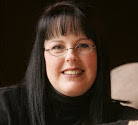 Best-selling author of thirty-plus novels, Robin Caroll writes Southern stories of mystery and suspense, with a hint of romance to entertain readers. Her books have been recognized in several awards, including the Carol Award, HOLT Medallion, Daphne du Maurier, RT Reviewer’s Choice Award, and more. To find out more about Robin, visit www.robincaroll.com
Best-selling author of thirty-plus novels, Robin Caroll writes Southern stories of mystery and suspense, with a hint of romance to entertain readers. Her books have been recognized in several awards, including the Carol Award, HOLT Medallion, Daphne du Maurier, RT Reviewer’s Choice Award, and more. To find out more about Robin, visit www.robincaroll.com
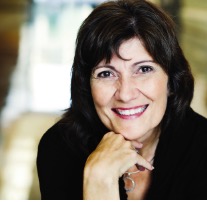 USAToday bestselling author Colleen Coble’s novels have won or finaled in awards ranging from the Best Books of Indiana, the ACFW Carol Award, the Romance Writers of America RITA, the Holt Medallion, the Daphne du Maurier, National Readers’ Choice, and the Booksellers Best. She has nearly 4 million books in print and writes romantic mysteries because she loves to see justice prevail. Colleen is CEO of American Christian Fiction Writers. Visit her website at www.colleencoble.com and connect at Facebook at https://www.facebook.com/colleencoblebooks?ref=hl
USAToday bestselling author Colleen Coble’s novels have won or finaled in awards ranging from the Best Books of Indiana, the ACFW Carol Award, the Romance Writers of America RITA, the Holt Medallion, the Daphne du Maurier, National Readers’ Choice, and the Booksellers Best. She has nearly 4 million books in print and writes romantic mysteries because she loves to see justice prevail. Colleen is CEO of American Christian Fiction Writers. Visit her website at www.colleencoble.com and connect at Facebook at https://www.facebook.com/colleencoblebooks?ref=hl
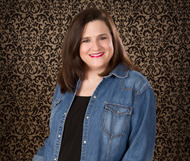 Lynette Eason writes for Revell, a division of Baker Publishing Group. Her books have appeared on the CBA, ECPA, and Publisher’s Weekly bestseller lists. In 2016, Lynette placed in the top ten in the James Patterson co-writers contest. She has won the Carol Award, the IRCC award, the Selah, Killer Nashville’s Reader’s Choice Award, the Christian Retailing’s Best Award and more. Lynette’s Love Inspired Suspense novel, Her Stolen Past was made into a Lifetime Movie Network movie which aired in February 2018. at www.lynetteeason.com and www.facebook.com/lynette.eason.
Lynette Eason writes for Revell, a division of Baker Publishing Group. Her books have appeared on the CBA, ECPA, and Publisher’s Weekly bestseller lists. In 2016, Lynette placed in the top ten in the James Patterson co-writers contest. She has won the Carol Award, the IRCC award, the Selah, Killer Nashville’s Reader’s Choice Award, the Christian Retailing’s Best Award and more. Lynette’s Love Inspired Suspense novel, Her Stolen Past was made into a Lifetime Movie Network movie which aired in February 2018. at www.lynetteeason.com and www.facebook.com/lynette.eason.
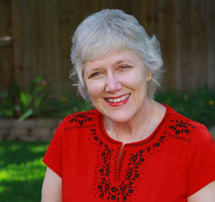 Bestseller Kelly Irvin is the author of eighteen books, including romantic suspense and Amish romance. The Library Journalsaid of her novel Tell Her No Lies, “a complex web with enough twists and turns to keep even the most savvy romantic suspense readers guessing until the end.” She followed up with Over the Line. The two-time ACFW Carol Award finalist worked as a newspaper reporter for six years on the Texas-Mexico border. Those experiences fuel her romantic suspense novels set in Texas. A retired public relations professional, Kelly now writes fiction full-time. She lives with her husband in San Antonio.
Bestseller Kelly Irvin is the author of eighteen books, including romantic suspense and Amish romance. The Library Journalsaid of her novel Tell Her No Lies, “a complex web with enough twists and turns to keep even the most savvy romantic suspense readers guessing until the end.” She followed up with Over the Line. The two-time ACFW Carol Award finalist worked as a newspaper reporter for six years on the Texas-Mexico border. Those experiences fuel her romantic suspense novels set in Texas. A retired public relations professional, Kelly now writes fiction full-time. She lives with her husband in San Antonio.
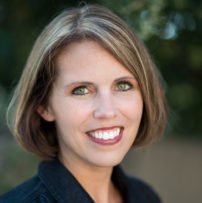
Cara Putman is the author of thirty-four legal thrillers, historical romances, and romantic suspense novels. She has won or been a finalist for honors including the ACFW Book of the Year and the Christian Retailing’s BEST Award. Cara graduated high school at sixteen, college at twenty, completed her law degree at twenty-seven, and recently received her MBA. She is a practicing attorney, teaches undergraduate and graduate law courses at a Big Ten business school, and is a mom of four. She lives with her husband and children in Indiana. Visit her website at CaraPutman.com; Facebook: Cara.Putman; Twitter: @Cara_Putman.
 Siri Mitchell is the author of 17 novels. She has also published under the pseudonym Iris Anthony. Siri graduated from the University of Washington with a business degree and has worked in government at the local, state, and federal levels. As a military spouse, she lived all over the world, including Paris and Tokyo. Siri’s books are, “unexpected, haunting, and powerful,” and they are known for lively dialogue and honest emotion.
Siri Mitchell is the author of 17 novels. She has also published under the pseudonym Iris Anthony. Siri graduated from the University of Washington with a business degree and has worked in government at the local, state, and federal levels. As a military spouse, she lived all over the world, including Paris and Tokyo. Siri’s books are, “unexpected, haunting, and powerful,” and they are known for lively dialogue and honest emotion.

















